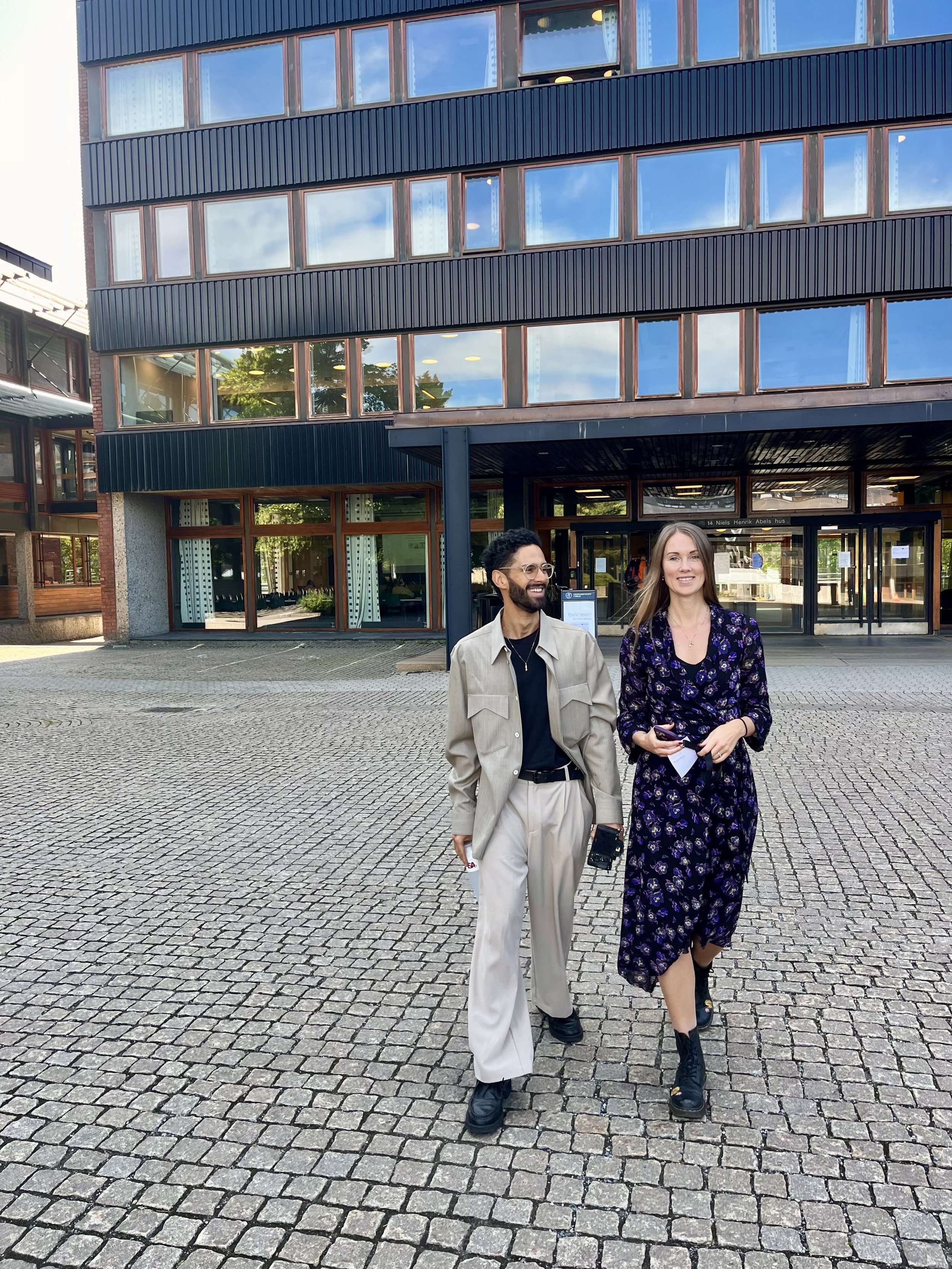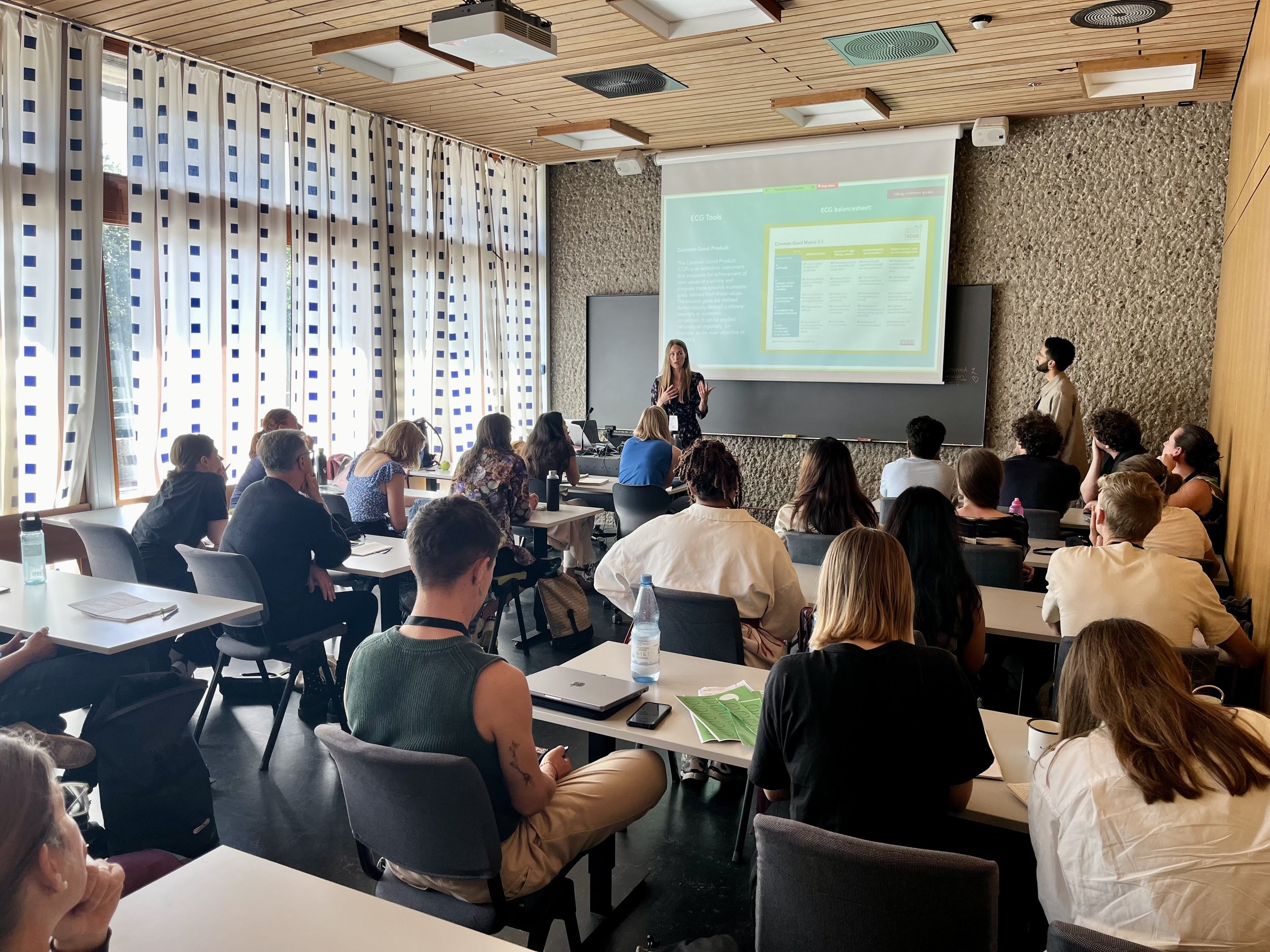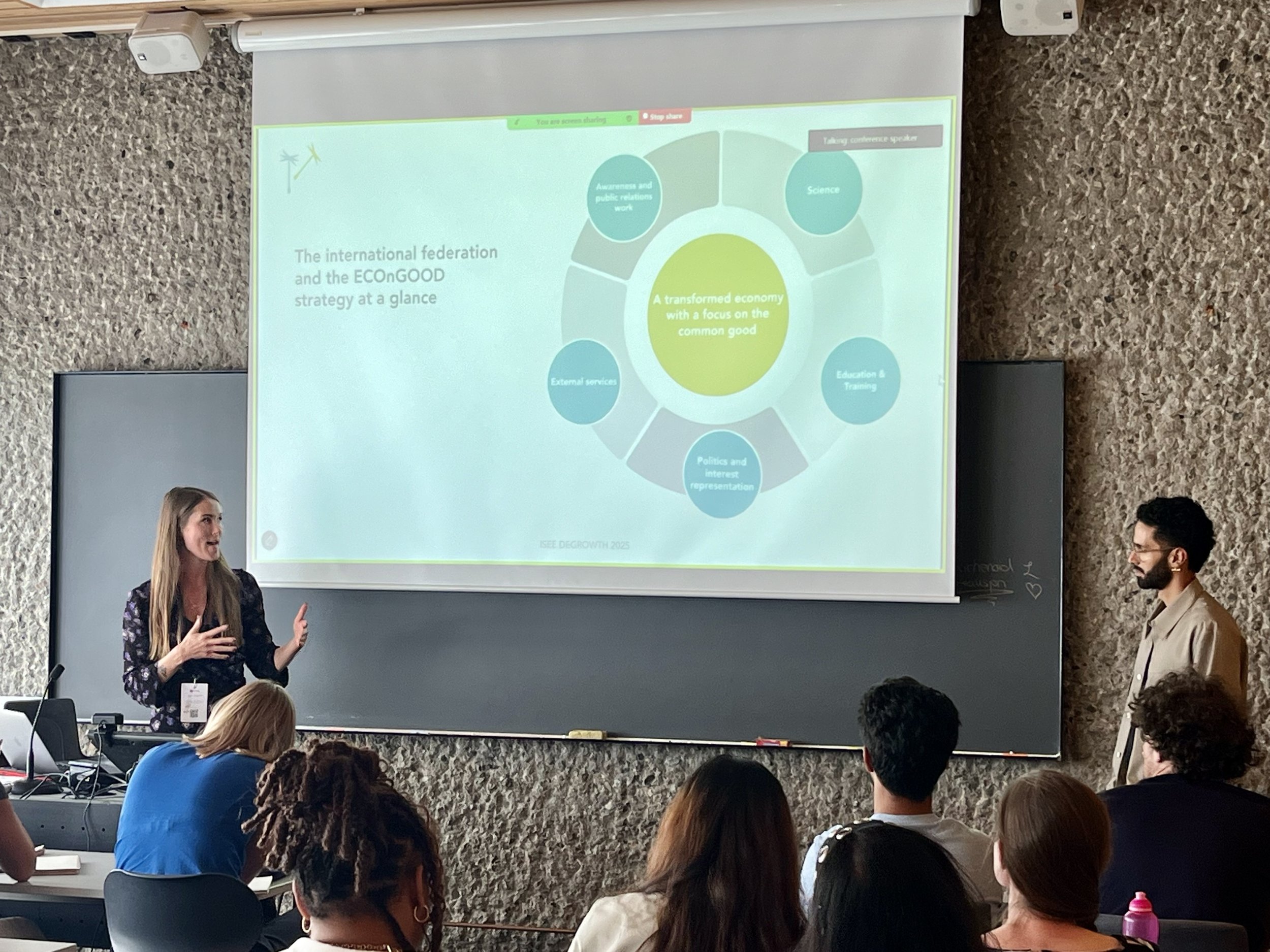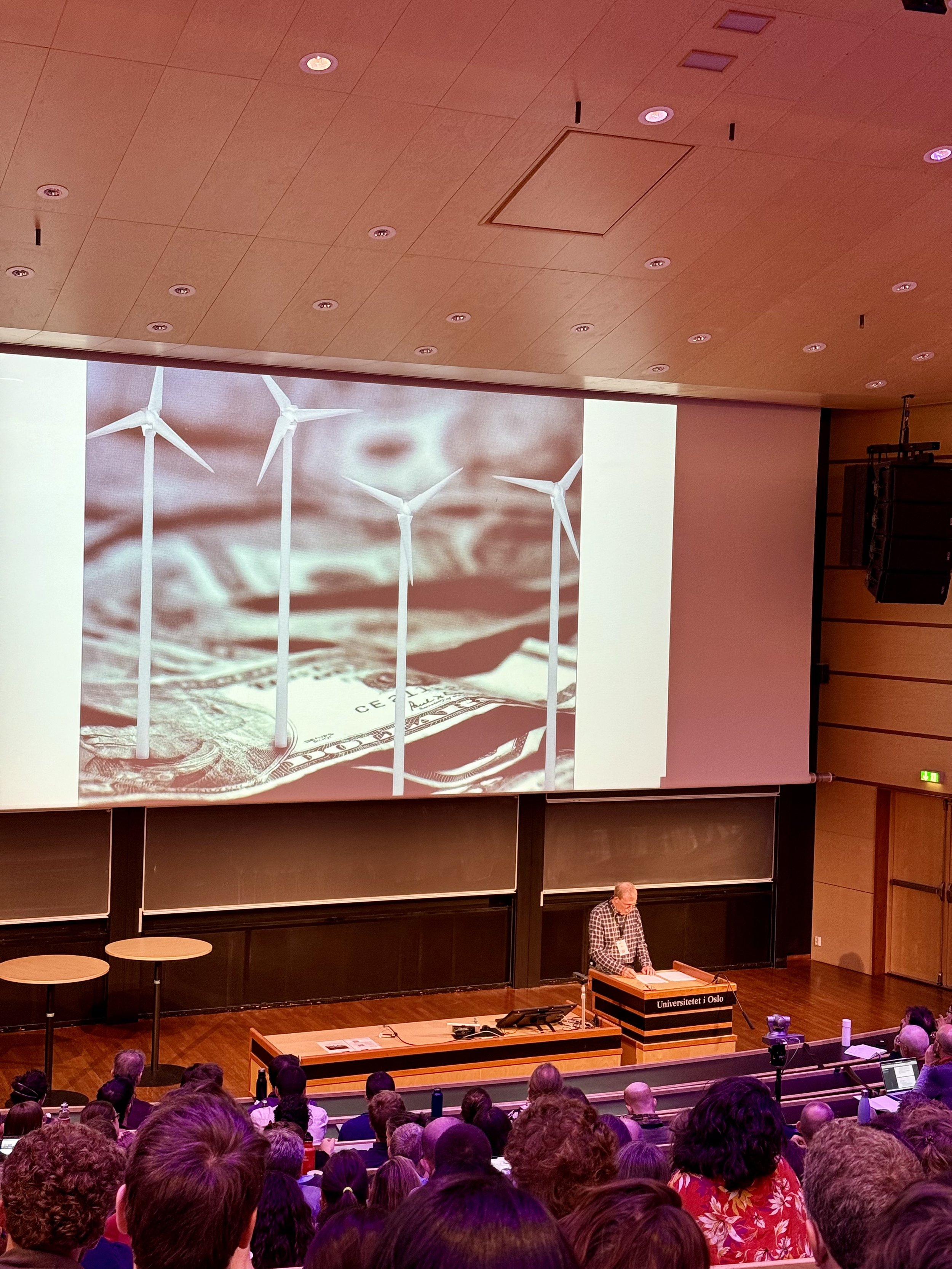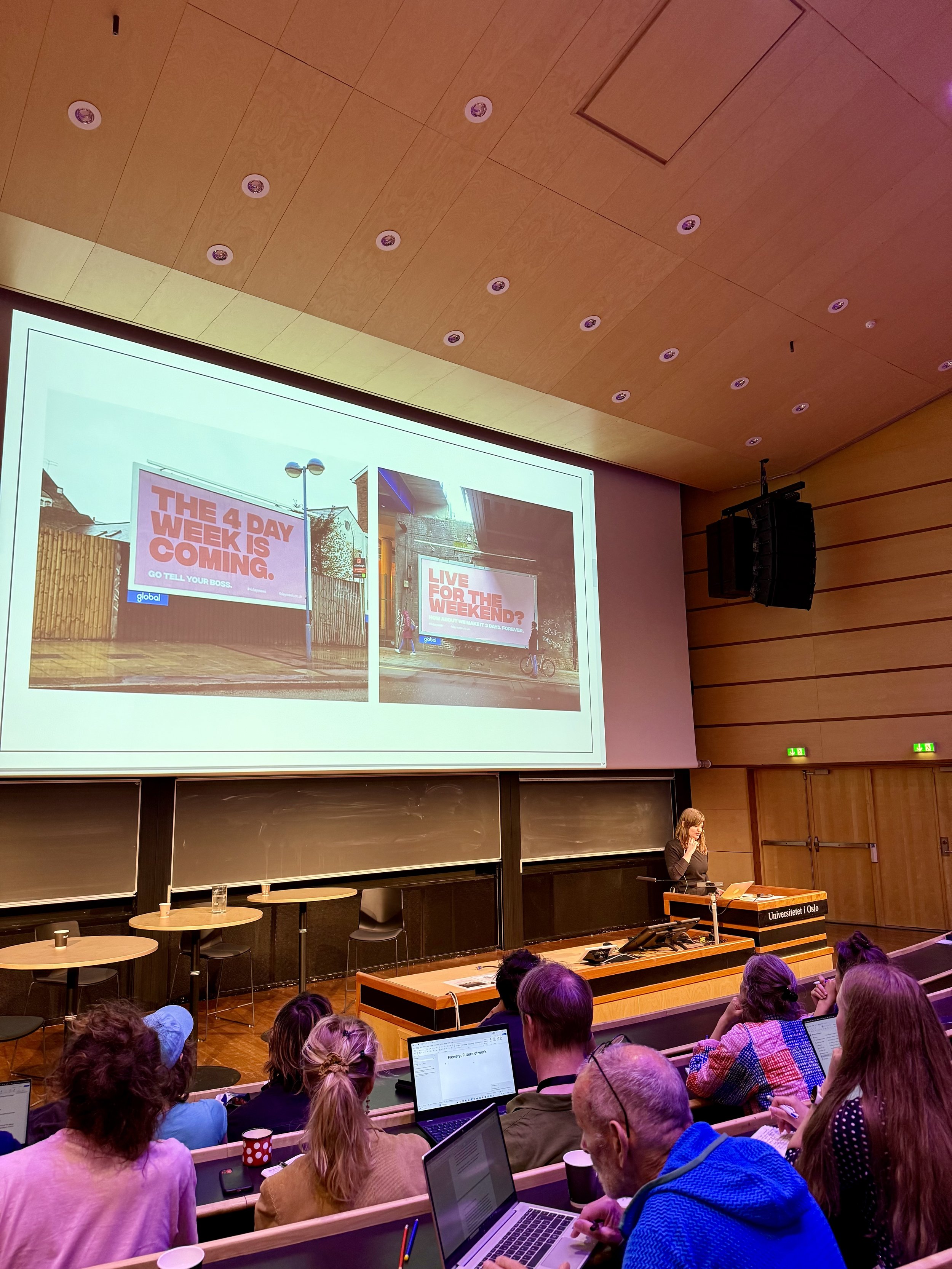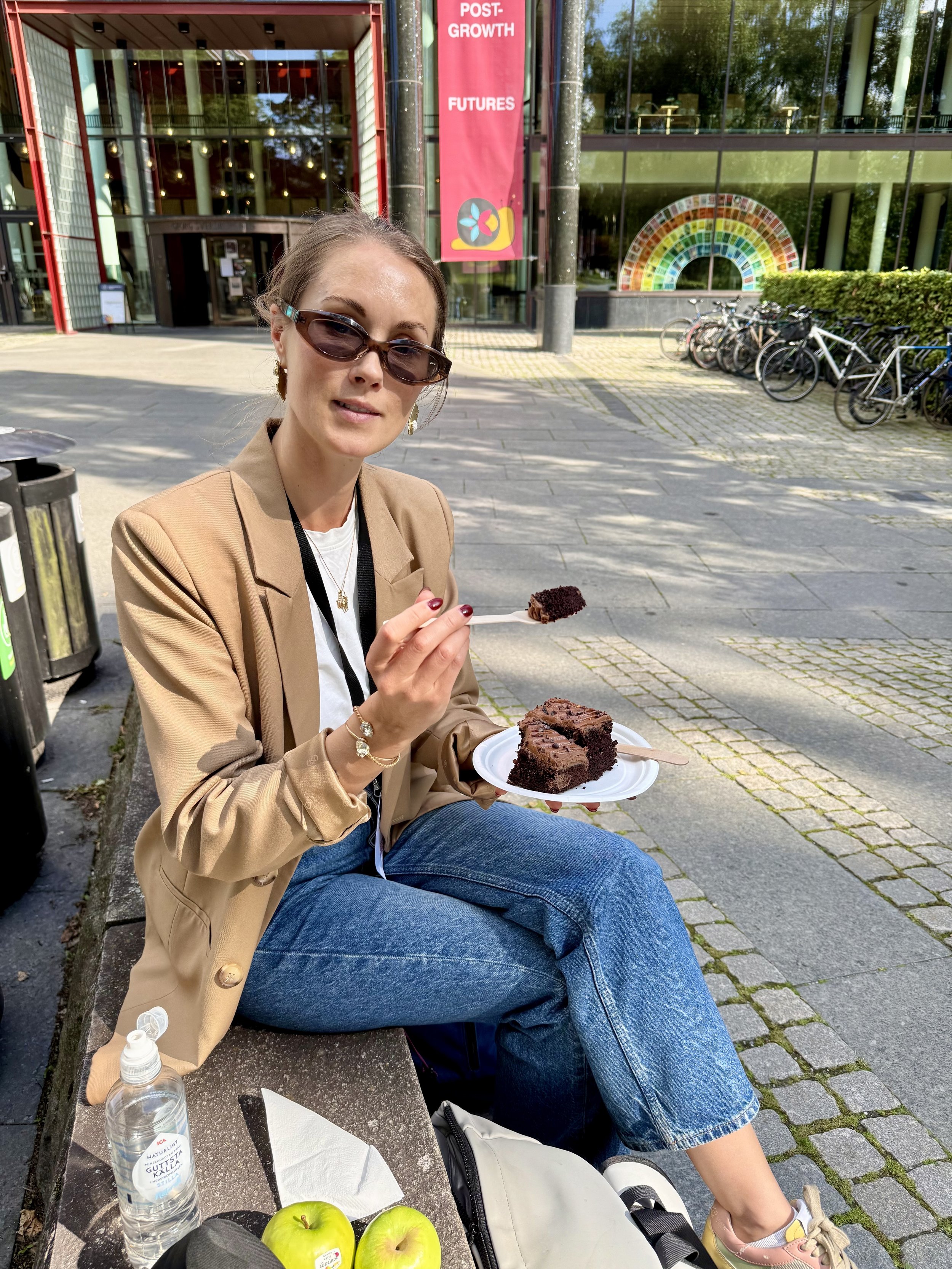Last week, at the end of June, I had the opportunity to attend the Ecological Economics and Degrowth Conference in Oslo, Norway. Organised by a broad interdisciplinary group, including members of the NMBU Sustainability Arena “Embedding planetary boundaries in science, policy and education”, the NMBU Political Ecology Forum, the UiO Include Centre, the Norwegian Institute for Nature Research, Degrowth Norway, Rethinking Economics Norway, and Postgrowth Nordics. The conference attracted 1,200 participants from 60 countries, representing mainly academia but also practice.
I was there on behalf of the International Federation of the Economy for the Common Good (ECOnGOOD), together with one of my colleagues. We presented our movement and one of its core tools, which supports and guides organisations and businesses that want their activities to contribute to the common good. The Common Good Balance Sheet examines four core values and multiple stakeholder groups, helping companies identify their strengths and areas for improvement. The tool ranges from +1,000 to –3,500 points; once completed and audited, companies receive a certificate and may use the ECOnGOOD label.
We spoke during the Businesses and Organisations Beyond GDP session, giving a ten-minute presentation alongside three other presenters. The response was overwhelmingly positive, and many participants stayed behind to ask questions. I believe much of the enthusiasm reflected the same reasons I was drawn to ECOnGOOD myself: it offers practical tools and implementation, not just a theory or abstract idea. The conceptual framework has been developed into concrete, usable tools that organisations can adopt on their journey towards the common good.
Beyond our own contribution, and one of the main reasons for attending, I’d like to share some insights from the conference itself. It spanned three full days, with a general assembly for members on Monday, an opening ceremony on Tuesday, and plenary and parallel sessions from Wednesday to Friday. The main hall hosted plenaries in the morning and evening, with smaller parallel sessions during the day throughout the rest of the university site.
The main plenaries addressed the following topics:
Decolonising the future: Youth struggles for intergenerational justice
Confronting inequalities in the green transformation
Is degrowth Eurocentric?
Sizing sufficiency: Contested framings of scarcity and limits
Work, working time, and care in postgrowth societies
Postgrowth transitions: Learning from practice
The way forward: Transformation strategies and tactics
I attended all the plenaries and will summarise some of my impressions here. The opening ceremony and first panel were particularly moving. Perhaps it was the atmosphere of the full hall, the children’s music, the Sami artist and activist Ella Marie Hætta Isaksen powerful songs, or the powerful speeches, by people sich as the chair person fo the conference Erik Gómez-Baggethun or Irene Vélez-Torres, former energy minister of Colombia, and others, that beautifully captured the urgency of moving beyond development-as-usual, dismantling colonial notions of progress, and addressing both climate and social injustice.
I also greatly enjoyed the second plenary, particularly Alf Hornborg, whose work I’ve followed for years and who dares to question assumptions about human progress and the role of technology. The third plenary offered valuable critiques of North–South dynamics, though some in the audience felt it lacked a deeper acknowledgement of the unequal power relations between the Global North and South. The panel on working time was inspiring too, reaffirming my belief in the need to reduce working hours, and I was particularly impressed by Lebohang Liepollo Pheko, always intellectually sharp, eloquent, and challenging in the best way.
That said, as the days passed, I felt the conference became more moralising and less solution-oriented. Don’t get me wrong: emotions and moral clarity are vital, too often absent at scientific conferences, but as someone who has worked in sustainability for over 15 years, it sometimes felt like listening to a radio stuck on repeat. I come to these spaces not only to connect with like-minded people but also to gain new insights and concrete ideas. I believe we need robust science, models, data, and relevant research questions to transform our economic systems. If justice is essential, how do we craft global policies that allow more people to enjoy time away from paid work? How can paid work meet not just needs but also dreams? How can we finance universal basic services and income? What regulatory changes are required to reduce material and energy use in the North while maintaining stable, safe economies that meet social needs?
Most of those attending a degrowth conference share common values: the need for decolonisation, climate justice, improved working conditions, sovereignty for all, and reduced material footprints in the Global North. There’s also often a shared understanding of the atrocities in Palestine and the shrinking democratic spaces in many societies. But approaches to solutions differ, and I felt the final day lacked focus on policy-making and identifying knowledge gaps critical to the transition. I left feeling somewhat disappointed. Perhaps this reflects the essence of the degrowth movement, which leans towards civil disobedience (based on what I heard from this conference, which doesn’t necessarily reflect the whole movement), an approach that does not fully align with my faith in institutions and the importance of policy-making.
But these are, of course, only my reflections. There are 1,000 other views, feelings, and interpretations; mine is just one among many. It’s impossible to meet all the needs of 1200 participants!
The parallel sessions were a treat, though a serious case of FOMO, with far too many fascinating topics to attend. I chose sessions that aligned with my interests and work. The smaller groups created a more intimate, conversational atmosphere, making it easier to ask questions and connect with others.
Among the highlights were sessions on the role of banks, finance, money, and investments, which explored how financial systems, monetary policy, and culture intersect in building a sustainable, post-growth future.
Michael Getzner showed the vast investments needed for climate neutrality and the challenges posed by public debt.
Sten Rodenborg advocated for reforming money creation itself, linking the money supply to sustainable yields and energy availability.
Agnieszka Maria Gaarsmand highlighted the need for transparency in Denmark’s “Money Week” education initiative.
David Collste explored funding universal basic income, showing that a mix of wealth tax and central bank financing yields the best results, though UBI alone won’t solve climate change.
The Beyond Binaries and Ecological Macroeconomics sessions also stood out:
Yvonne Howell showed how Cold War narratives glorified growth as a moral good, bypassing behavioural change.
Jennifer Hinton challenged the state–market dichotomy, asking instead how to maximise social benefits.
Mariateresa Silvi presented EU data showing strong public support for moving “beyond GDP.”
Rubén Vezzoni questioned whether the EU’s decoupling only relative of emissions from growth can last.
Stephan Butler reflected on how competitive, market-driven pressures shape our lives, calling for more time, connection, and shared experiences rather than consumption.
Others explored innovative models, such as entropy-based analyses, stock-flow input-output modelling, and strategies of post-growth-friendly public officials.
There were many excellent sessions, and it was a joy to connect with authors and practitioners interested in our work. I sincerely hope future Beyond Growth conferences continue to explore the financial, labour, energy, material, and macroeconomic aspects of transitioning our economies beyond growth dependency, towards well-being for all life on a living planet.
During the week, I enjoyed many meaningful conversations, thank you to everyone for that, good vegan lunches and dinners, catching up with old friends from my years living in Oslo, and a restful weekend with spa and museum visits. I came home exhausted by all the impressions. I am outwardly social and engaged when I meet people, but I also have a strong need for solitude and to reset.
I am proud that I went, for the presentation we gave, for the time spent in Oslo, and for the new friendships forged. I am glad to see that so many of us want change, even if our ways of creating change differ.
It is always a challenge to remain authentic, to lead one’s life with agency and trust in one’s values. But because I care deeply, I find it more important than ever to participate in a transformation that reflects my way of being, working, and caring.
There is no universal ‘right way’. We need change-makers with a diversity of thoughts and approaches. The more of us who dare to lead authentically, the more others will feel they too can walk their own path towards change, and know they can play a role in transforming our economic systems.
This is not about left or right, liberal or conservative, business versus public sector; it is about a shared call for an economy that serves humanity, the planet, and all its inhabitants, today and tomorrow.
Thank you for reading, to be continued…



